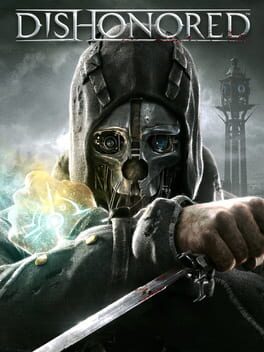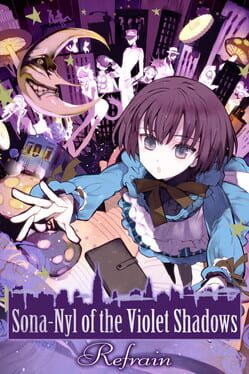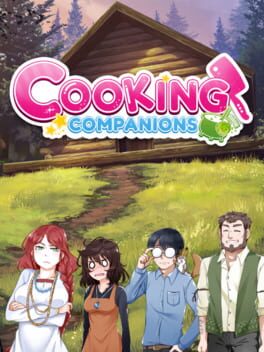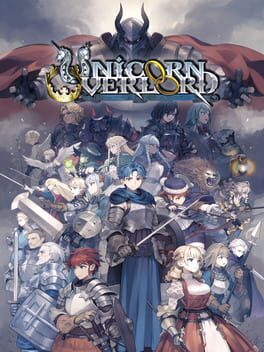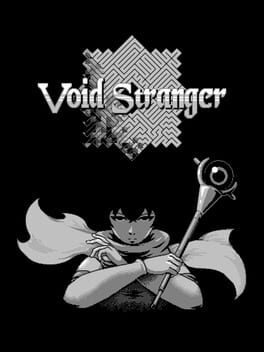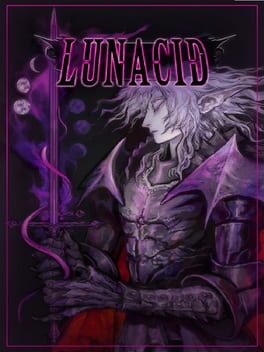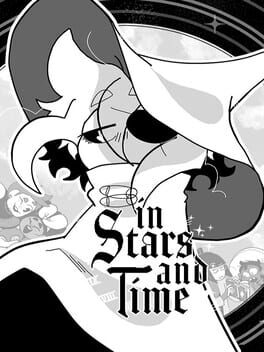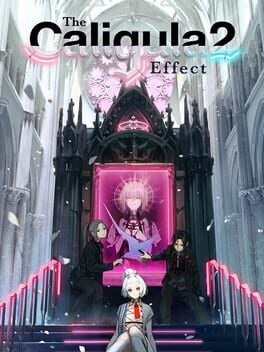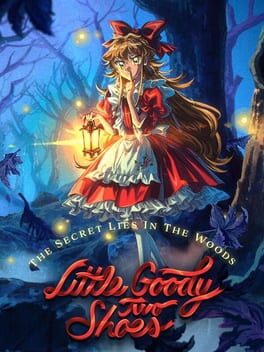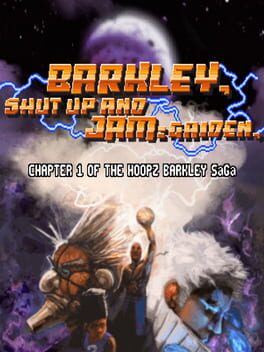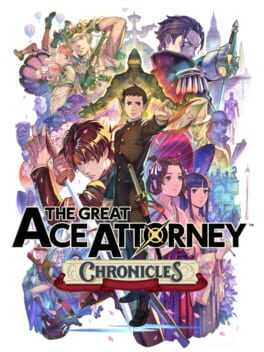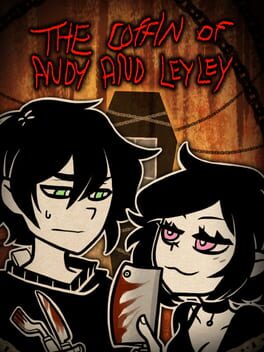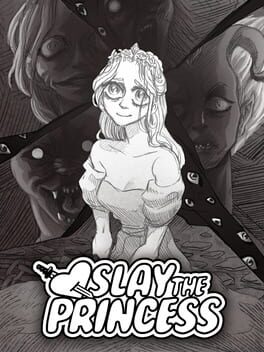ContessaKoumari
2012
Arkane are masters of the 7/10 stealth shooter. Somehow, skipping the live-service game they were presumably forced to make by publishers, they have only ever released 7/10 games. It's honestly impressive.
The good news, this game is jank. It's one step removed from Deus Ex in how clowny you can get with the engine, there's a fine layer of "this doesn't feel like it works right..." to basically every element of the game, in a good way. This, combined with the almost Hitman-like approach to level design makes the game actually do a good job of creating your fun as you pilot your clown of an assassin through each level.
The bad news is like, everything else. One thing I've come to truly hate in games like these is the pacifism v violence conflict. This game is basically screaming at you to be a nice guy and play pacifist stealth, but its just so dumb because in like every stealth shooter, you end up not using a solid 60% of the game mechanics, doubly so in this game because using your cool mobility in combat would be sick as hell! If you were incentivized to do so in any case.
The story is some nonsense about like revenge idk it doesn't matter--Hitman don't need a story beyond the levels either. It tries to do something slightly deep by making the non-lethal options for the bosses of each level fates worth than death, but its really hard to care when no one has any personality and they all look like shit lol.
I don't even think the setting is particularly cool, it just feels like a dingy city with mild steampunk aesthetic and a random elder god watching it. Which like, the literal last game I played was Sona-Nyl of the Violet Shadows and buddy--this ain't no Sona-Nyl.
idk there isn't much to talk about. Do you like 7/10 stealth shooters? That's what this is!
The good news, this game is jank. It's one step removed from Deus Ex in how clowny you can get with the engine, there's a fine layer of "this doesn't feel like it works right..." to basically every element of the game, in a good way. This, combined with the almost Hitman-like approach to level design makes the game actually do a good job of creating your fun as you pilot your clown of an assassin through each level.
The bad news is like, everything else. One thing I've come to truly hate in games like these is the pacifism v violence conflict. This game is basically screaming at you to be a nice guy and play pacifist stealth, but its just so dumb because in like every stealth shooter, you end up not using a solid 60% of the game mechanics, doubly so in this game because using your cool mobility in combat would be sick as hell! If you were incentivized to do so in any case.
The story is some nonsense about like revenge idk it doesn't matter--Hitman don't need a story beyond the levels either. It tries to do something slightly deep by making the non-lethal options for the bosses of each level fates worth than death, but its really hard to care when no one has any personality and they all look like shit lol.
I don't even think the setting is particularly cool, it just feels like a dingy city with mild steampunk aesthetic and a random elder god watching it. Which like, the literal last game I played was Sona-Nyl of the Violet Shadows and buddy--this ain't no Sona-Nyl.
idk there isn't much to talk about. Do you like 7/10 stealth shooters? That's what this is!
I was first introduced to the writing of Hikaru Sakurai via Fate/Grand Order. In that fandom, at least in the west, she's seen as something of a pariah--a very poor writer who can't rein in her otome tendencies and writes bad deus ex machina plots. I've never really agreed with that criticism, I think her arcs in that game are mostly fine if strangled a bit by early-game weirdness or being forced to do Main Plot Stuff and not asmuch use her voice. I've always wondered what her writing was like outside the context of Type-Moon.
Which leads me to Sona-Nyl. Although not the first game of hers to be translated into english, it was the one I was pointed to as being "actually good". And, well, it was!
The thing that stood out to me was the quality of the prose. Even through translation, it is immediately and clearly apparent that the writing from the moment you start Sona-Nyl comes from a different, more literary place than most of its contemporaries. It's use of rhythm and repetition, short but flowery description, and fuzzy emotions are all just really beautiful and help elevate the material throughout the game.
Like, the structure of the story means that in each chapter of the game there is a lot of repeated narration passages--like, literally word for word repeated 6+ times. In the hands of weaker writers, this would have been miserable and an obvious way to kill the pacing of the game, but here just by how the script is and how the narrative unfolds, I ended up relishing each time they'd repeat the passages and it gives them so much more meaning as you learn more of the world.
Of course, all the beautiful writing in the world wouldn't matter if the core narrative wasn't good, which is also the case here--the twin stories of Elysia exploring the ruins of New York while Lily explores the fantasy underground entwine in a way that gives the story a strong structure that both leans into the story's message and the greater meaning of the series.
Like, there's a clockwork-like precision to the narrative and prose that tie together that really make this work feel steampunk not just in setting, but in the actual words as well. It's something I've really never seen executed here and makes it a better steampunk work than most anything else I've read. But there's an inhumanity to it just as much, a certain unease that comes across that also pushes absurd ethereal world the characters live in. Its just...beautiful.
I don't really know what else to add. It's a very different take on this sort of science-fantasy than you'll find anywhere else in the visual novel field, let alone outside of it. It instantly sold me on reading as much of Sakurai's works as possible, and I wholeheartedly recommend it.
Which leads me to Sona-Nyl. Although not the first game of hers to be translated into english, it was the one I was pointed to as being "actually good". And, well, it was!
The thing that stood out to me was the quality of the prose. Even through translation, it is immediately and clearly apparent that the writing from the moment you start Sona-Nyl comes from a different, more literary place than most of its contemporaries. It's use of rhythm and repetition, short but flowery description, and fuzzy emotions are all just really beautiful and help elevate the material throughout the game.
Like, the structure of the story means that in each chapter of the game there is a lot of repeated narration passages--like, literally word for word repeated 6+ times. In the hands of weaker writers, this would have been miserable and an obvious way to kill the pacing of the game, but here just by how the script is and how the narrative unfolds, I ended up relishing each time they'd repeat the passages and it gives them so much more meaning as you learn more of the world.
Of course, all the beautiful writing in the world wouldn't matter if the core narrative wasn't good, which is also the case here--the twin stories of Elysia exploring the ruins of New York while Lily explores the fantasy underground entwine in a way that gives the story a strong structure that both leans into the story's message and the greater meaning of the series.
Like, there's a clockwork-like precision to the narrative and prose that tie together that really make this work feel steampunk not just in setting, but in the actual words as well. It's something I've really never seen executed here and makes it a better steampunk work than most anything else I've read. But there's an inhumanity to it just as much, a certain unease that comes across that also pushes absurd ethereal world the characters live in. Its just...beautiful.
I don't really know what else to add. It's a very different take on this sort of science-fantasy than you'll find anywhere else in the visual novel field, let alone outside of it. It instantly sold me on reading as much of Sakurai's works as possible, and I wholeheartedly recommend it.
2021
2024
One of the best ubisoft open-world games ever made, funnily enough. And yet.
Unicorn Overlord starts strong--it doesn't waste your time jumping into the meat of the game, putting you in the world and basically telling you "go ham" on liberating the nations from the Evil Empire. This ends up playing out like those Ubisoft games I mentioned--the various towns you liberate are 30 second long puzzle fights that are actually quite endearing, which act as towers that mostly unlock the surrounding area. You have a set of pretty tedious things to collect in each region just like that, it ends up being very checklist gaming.
And this works for a while, but the difficulty tuning is just way off. I played on the hardest difficulty before NG+ and it was trivial to do content 20+ levels above me because the power scaling goes crazy if you actually try even a little to do content.
This is also hampered by an actually atrocious story. It's somehow both overwritten and underwritten at the same time, using a thousand words to say something that has the content of ten. I was actually shocked by how literally every plot and subplot is like, the lamest most overly-played out trope of whatever that plot is. There is not a shred of intrigue to be found in the moment to moment writing nor the grand narrative at play, and yet the cutscenes just take it so seriously and feel like they want you to.
It honestly made me hate it all the more. I'm serious, if this game completely removed the narrative and made it play out more like Total War or X-Com or something where you have a vague objective, it'd be significantly better.
The saving grace is of course, the actual game. It's an interesting mix of Super Auto Pets-style trigger setting to create a doom machine with Fire Emblem as an RTS that has infinite amounts of space for clever players to work with. Of course, the issue as I mentioned before is the game doesn't really utilize it. I am by no means a "clever player", I'm a fucking ape in these sorts of games, but even my monkey brain "well if i put three of the cavalry guys who get a 'all cavalry get +50% strength' skill in a party surely its good" was able to literally blitz through the game.
It's good enough that I played through the rest of the game just to see what it was doing. What I'd really like to see is a Unicorn Overlord 2 where they actually push the battle system harder, make you think a little. And maybe actually try and write a story, its not like we don't know Vanillaware can't--13 Sentinels was literally their last game!
Unicorn Overlord starts strong--it doesn't waste your time jumping into the meat of the game, putting you in the world and basically telling you "go ham" on liberating the nations from the Evil Empire. This ends up playing out like those Ubisoft games I mentioned--the various towns you liberate are 30 second long puzzle fights that are actually quite endearing, which act as towers that mostly unlock the surrounding area. You have a set of pretty tedious things to collect in each region just like that, it ends up being very checklist gaming.
And this works for a while, but the difficulty tuning is just way off. I played on the hardest difficulty before NG+ and it was trivial to do content 20+ levels above me because the power scaling goes crazy if you actually try even a little to do content.
This is also hampered by an actually atrocious story. It's somehow both overwritten and underwritten at the same time, using a thousand words to say something that has the content of ten. I was actually shocked by how literally every plot and subplot is like, the lamest most overly-played out trope of whatever that plot is. There is not a shred of intrigue to be found in the moment to moment writing nor the grand narrative at play, and yet the cutscenes just take it so seriously and feel like they want you to.
It honestly made me hate it all the more. I'm serious, if this game completely removed the narrative and made it play out more like Total War or X-Com or something where you have a vague objective, it'd be significantly better.
The saving grace is of course, the actual game. It's an interesting mix of Super Auto Pets-style trigger setting to create a doom machine with Fire Emblem as an RTS that has infinite amounts of space for clever players to work with. Of course, the issue as I mentioned before is the game doesn't really utilize it. I am by no means a "clever player", I'm a fucking ape in these sorts of games, but even my monkey brain "well if i put three of the cavalry guys who get a 'all cavalry get +50% strength' skill in a party surely its good" was able to literally blitz through the game.
It's good enough that I played through the rest of the game just to see what it was doing. What I'd really like to see is a Unicorn Overlord 2 where they actually push the battle system harder, make you think a little. And maybe actually try and write a story, its not like we don't know Vanillaware can't--13 Sentinels was literally their last game!
The rare example of a game that is worse than its predecessor, despite being better in every way.
You name the aspect when it comes to the act of playing the game is better--the combat is more fun, Hawaii is beautiful and incredibly fun to traverse, the minigames are as wonderful as ever in addition to bringing back most of the ones from the last game, the the ost has a bit more sauce to it, its just wonderful to play.
But, the word of the day is pacing. This game suffers heavily from poor pacing in every aspect just as well. You get your overarching objective early into the game...and it doesn't change until about 70% of the way in. It quickly gets tiring as you walk to another place so the bad guy there can tell you the princess is in another castle. Eventually it gets so infuriating that they have a random npc come out of nowhere to give you her to end the plot and start the endgame. The final boss comes out of nowhere and is generally completely uninteresting, they knew it too because they added other silly bosses in the lead-up to him then shunt you over to Kiryu for the "serious" finale.
This in itself isn't bad, but it just really makes Ichiban's storyline even more unsatisfying that it already is. Ichiban has no relation to this guy or anything going on, he's just Here To Beat Up the Bad Guy. The main antagonist faction is also kind of questionable from a sensitivity perspective--the obvious intention with them was to pull from the Unification Church and the Shinzo Abe assassination, but by transporting that to America and making them worship an indiginous religion it comes across in rather poor taste.
Kiryu's plot fares better--I have never played the old Yakuzas before 7, I don't like that sort of action game, but it definitely sold me on his character and history, and it got really emotional in the sense of a man looking back on his life. When it wasn't focused on the Big Conspiracy of the game, the small moments were really good and brought some of the humanity of 7 back.
The pacing bleeds into the gameplay too. The game has a really awkward difficulty curve, its never like too hard or anything, but you'll just randomly hit spikes after sometimes arbitrary missions where the level requirement jumps up by 5 or 10. And the way they pace your currency is the game is just poor, they went for a strictly tiered equipment system this time around, with each tier of equipment costing exponentially more than the last. But the actual tuning of money in the midgame is poor--the game asks for significantly more money than it gives you to keep concurrent with gear through the middle of the game, which just meant I sat there undergeared through it until we hit the lategame that showers you with infinite wealth.
Tying into it is an uninteresting and mostly just annoying upgrade mat system, with the capstone mats being gated by long grinds or doing the fishing gacha minigame for an hour.
They also don't unlock the job change system until like 50% of the way through the game, which is absurd and really only messes with the curve since you're already significantly into the game before you can play with the system. I really don't know what they were thinking here.
Altogether, the tedium of the story and pacing just really brought it down for me. It's undeniably a great game, but its less than the sum of its parts.
You name the aspect when it comes to the act of playing the game is better--the combat is more fun, Hawaii is beautiful and incredibly fun to traverse, the minigames are as wonderful as ever in addition to bringing back most of the ones from the last game, the the ost has a bit more sauce to it, its just wonderful to play.
But, the word of the day is pacing. This game suffers heavily from poor pacing in every aspect just as well. You get your overarching objective early into the game...and it doesn't change until about 70% of the way in. It quickly gets tiring as you walk to another place so the bad guy there can tell you the princess is in another castle. Eventually it gets so infuriating that they have a random npc come out of nowhere to give you her to end the plot and start the endgame. The final boss comes out of nowhere and is generally completely uninteresting, they knew it too because they added other silly bosses in the lead-up to him then shunt you over to Kiryu for the "serious" finale.
This in itself isn't bad, but it just really makes Ichiban's storyline even more unsatisfying that it already is. Ichiban has no relation to this guy or anything going on, he's just Here To Beat Up the Bad Guy. The main antagonist faction is also kind of questionable from a sensitivity perspective--the obvious intention with them was to pull from the Unification Church and the Shinzo Abe assassination, but by transporting that to America and making them worship an indiginous religion it comes across in rather poor taste.
Kiryu's plot fares better--I have never played the old Yakuzas before 7, I don't like that sort of action game, but it definitely sold me on his character and history, and it got really emotional in the sense of a man looking back on his life. When it wasn't focused on the Big Conspiracy of the game, the small moments were really good and brought some of the humanity of 7 back.
The pacing bleeds into the gameplay too. The game has a really awkward difficulty curve, its never like too hard or anything, but you'll just randomly hit spikes after sometimes arbitrary missions where the level requirement jumps up by 5 or 10. And the way they pace your currency is the game is just poor, they went for a strictly tiered equipment system this time around, with each tier of equipment costing exponentially more than the last. But the actual tuning of money in the midgame is poor--the game asks for significantly more money than it gives you to keep concurrent with gear through the middle of the game, which just meant I sat there undergeared through it until we hit the lategame that showers you with infinite wealth.
Tying into it is an uninteresting and mostly just annoying upgrade mat system, with the capstone mats being gated by long grinds or doing the fishing gacha minigame for an hour.
They also don't unlock the job change system until like 50% of the way through the game, which is absurd and really only messes with the curve since you're already significantly into the game before you can play with the system. I really don't know what they were thinking here.
Altogether, the tedium of the story and pacing just really brought it down for me. It's undeniably a great game, but its less than the sum of its parts.
2023
Other people have written what I would say on Void Stranger much better than I could. What I'd just like to highlight is how powerful the script is--this game has shockingly little dialogue, but it packs every word with the perfect amount of sentiment. Mixed with arguably the best pixel art Ive ever seen in the medium, it really keeps you going through the void, run after run, constantly chasing shadows to find the next clue to the bigger puzzle of the world these characters inhabit.
To speak any deeper would be to ruin the experience, which is ultimately the curse of this game, but its just a wonderful time if you like that sort of gameplay-story integration in games, its so much more than the sum of its parts.
I am not a sokoban gamer though.
To speak any deeper would be to ruin the experience, which is ultimately the curse of this game, but its just a wonderful time if you like that sort of gameplay-story integration in games, its so much more than the sum of its parts.
I am not a sokoban gamer though.
2022
Lunacid starts at its strongest, its honestly a fascinating game. The first few areas are frenetic, you're weak, even fighting a snail is a brawl. But, once you level up a few times and find a ranged weapon the game falls off in that sort of tension. Enemy design is archaic in this game, a good 90% of enemies are exclusively melee so you can just kite them out with ranged weapons trivially(which if like me you started as a Royal, you can buy immediately upon spawning in).
By the end of the game, Lunacid has ceased even a modicum of that thoughtfulness early on and instead turns into a shockingly-accurate reproduction of Half-Life 1, I even used my old counter-strike surf map skills to cheese many areas up to and including the final boss by gliding up and down wonky geometry. I personally find half the fun of these sorts of games being in breaking them, so I loved it, but I'm sure someone who was more enthralled by the methodical play of the early parts would disagree. This is combined with the fact the game rarely throws actually interesting combat encounters at you--very rarely are there more than two enemies in a room at a time, and I can count the number of actual bosses on one hand, so you're not really challenged at all once you get a build going.
The exploration is the other half, and it excels there with so many little secrets, hidden areas, routes through the game, and whatnot that it genuinely feels rewarding to meticulously go through the dim winding dungeons, but the relative dearth of interesting experiences in those place is whats stopping it from greatness.
By the end of the game, Lunacid has ceased even a modicum of that thoughtfulness early on and instead turns into a shockingly-accurate reproduction of Half-Life 1, I even used my old counter-strike surf map skills to cheese many areas up to and including the final boss by gliding up and down wonky geometry. I personally find half the fun of these sorts of games being in breaking them, so I loved it, but I'm sure someone who was more enthralled by the methodical play of the early parts would disagree. This is combined with the fact the game rarely throws actually interesting combat encounters at you--very rarely are there more than two enemies in a room at a time, and I can count the number of actual bosses on one hand, so you're not really challenged at all once you get a build going.
The exploration is the other half, and it excels there with so many little secrets, hidden areas, routes through the game, and whatnot that it genuinely feels rewarding to meticulously go through the dim winding dungeons, but the relative dearth of interesting experiences in those place is whats stopping it from greatness.
2022
2023
I'm always wary of western indie devs inspired by classic jrpgs--they usually miss what was actually fun about those games and opt for some awful mix of mechanics done better in those old games glossed over with some pretty paint. So, I went into In Stars and Time with a bit of a prejudice.
And...it was pretty good! For one, this game borrows its core from the classic rpgmaker game on dlsite--the rpg mechanics here are threadbare and function more as a narrative tool than "something you play", and the narrative thrust is all about the main character Siffrin delving deeper and deeper into every time loop, trying to find how to beat King.
My other worry coming into the game was that it'd be too...wholesome and twee? I was on tumblr in the 2010s, I've seen this art style acutely, the sort of overly-cute "lets hold hands and talk about our feelings and everything will be okay" sort of thing was completely endemic, and this game sort of has it but its not like, annoying about it?
In fact, its actually quite a delight learning more about how that sort of ethos is presented as worldbuilding. See, basically every single object in the game has copious amounts of flavor text if you interact with them--like, obscene amounts. You very quickly learn the interior lives of every person you meet, every little belief or habit of everyone and the world around you, in near-excrutiating detail. At first, I thought this was just a bit of narrative flourish--but then I beat the final boss the first time, the time loop nature became clearly apparent, and I understood.
See, this game really sells you on the tedium. You will likely go through "the game" 30 to 40 times over the course of the game, and all that flavor text adds up. You will get to the end of one run to see something new, learn oops you fucked up and forgot the random doodad you couldn't know you needed back at the beginning of the game, then loop back go through all that fucking dialogue(which yes has a skip feature for some of it), get the doodad, go back again before finding more shit you didn't know you needed. You start optimizing your runs--dodge the corner here so you can bait the random trash mob into walking in the other direction to skip that encounter, interact with only the few objects you need to continue progressing, skip over that room you don't technically need to, take the left-hand path around an atrium so your barrier maiden doesn't see her friend dead, keep going...it'll still take 20-30 minutes to go from beginning to end, but its faster.
it's all to wonderful effect. You are stuck in this loop too, watching the same shit happen again and again, its incredibly tedious to go through and makes you as a player mimic Siffrin's decent. But, it works, and I love it for it--because the game is well-paced and in spite of the repetition, there is always narrative thrust, always one more thing to investigate, or a new line you somehow missed before that makes it all never feel dull. I genuinely think adding more qol, more ways to skip past the uninteresting parts would hinder this game and it's impact.
Of course, it all wouldn't work if it was in service of an uninteresting narrative--which it definitely doesn't have. The game I think I compare it the most to is perhaps Disco Elysium--there's a similar conceit at play, whereas Revechol is initially presented as a pretty normal pastiche of east europe in that game, and all the weird fucky worldbuilding slowly creeps up and takes over the setting there, its similar for this--the game presents itself as a cutesy maou/yuusha story, and its only through repeated loops and investigation do you see how weird the world actually is. And, in perfect time loop tradition, it brings it all back home in the finale--it won't surprise you if you've read any number of past time loop stories, but the execution is quite good.
Altogether, a good time that I don't regret at all.
And...it was pretty good! For one, this game borrows its core from the classic rpgmaker game on dlsite--the rpg mechanics here are threadbare and function more as a narrative tool than "something you play", and the narrative thrust is all about the main character Siffrin delving deeper and deeper into every time loop, trying to find how to beat King.
My other worry coming into the game was that it'd be too...wholesome and twee? I was on tumblr in the 2010s, I've seen this art style acutely, the sort of overly-cute "lets hold hands and talk about our feelings and everything will be okay" sort of thing was completely endemic, and this game sort of has it but its not like, annoying about it?
In fact, its actually quite a delight learning more about how that sort of ethos is presented as worldbuilding. See, basically every single object in the game has copious amounts of flavor text if you interact with them--like, obscene amounts. You very quickly learn the interior lives of every person you meet, every little belief or habit of everyone and the world around you, in near-excrutiating detail. At first, I thought this was just a bit of narrative flourish--but then I beat the final boss the first time, the time loop nature became clearly apparent, and I understood.
See, this game really sells you on the tedium. You will likely go through "the game" 30 to 40 times over the course of the game, and all that flavor text adds up. You will get to the end of one run to see something new, learn oops you fucked up and forgot the random doodad you couldn't know you needed back at the beginning of the game, then loop back go through all that fucking dialogue(which yes has a skip feature for some of it), get the doodad, go back again before finding more shit you didn't know you needed. You start optimizing your runs--dodge the corner here so you can bait the random trash mob into walking in the other direction to skip that encounter, interact with only the few objects you need to continue progressing, skip over that room you don't technically need to, take the left-hand path around an atrium so your barrier maiden doesn't see her friend dead, keep going...it'll still take 20-30 minutes to go from beginning to end, but its faster.
it's all to wonderful effect. You are stuck in this loop too, watching the same shit happen again and again, its incredibly tedious to go through and makes you as a player mimic Siffrin's decent. But, it works, and I love it for it--because the game is well-paced and in spite of the repetition, there is always narrative thrust, always one more thing to investigate, or a new line you somehow missed before that makes it all never feel dull. I genuinely think adding more qol, more ways to skip past the uninteresting parts would hinder this game and it's impact.
Of course, it all wouldn't work if it was in service of an uninteresting narrative--which it definitely doesn't have. The game I think I compare it the most to is perhaps Disco Elysium--there's a similar conceit at play, whereas Revechol is initially presented as a pretty normal pastiche of east europe in that game, and all the weird fucky worldbuilding slowly creeps up and takes over the setting there, its similar for this--the game presents itself as a cutesy maou/yuusha story, and its only through repeated loops and investigation do you see how weird the world actually is. And, in perfect time loop tradition, it brings it all back home in the finale--it won't surprise you if you've read any number of past time loop stories, but the execution is quite good.
Altogether, a good time that I don't regret at all.
Caligula Effect Overdose was a pretty legendary kusoge with a good story backed up by some of the worst gameplay systems on every level you can imagine. But, even in that game they managed to nail the vibes. When you first leave the classroom in Overdose and Peter Pan Syndrome starts playing, then get into battle and the vocals come in--its perfect.
They smartly leaned even more into that in Caligula 2 while softening all the edges that made that game so unplayable otherwise. In basically every way, this game is just "Caligula Overdose but better", down to the plot taking place in Redo, a literal redo of the first game's premise.
And I really do mean everything. Starting off, the dungeons are no longer awful, just bad. There's nothing like the fucking library or Aztec Temple of the first game, which alone is great. I hope by the third game they actually manage to make a good one.
The combat was always passable in Overdose, but the various aesthetic improvements here really nail the "contructing a music video" vibe of the game, especially the new "x-jack" feature which instantly swaps out the bgm with one sung by your friendly neighborhood good guy vocaloid and buffs your team--its honestly so sick when you're fighting a boss, x-jack and proceed to 100 hit combo all over them while your theme song plays, it just feels so triumphant and powerful. The mechanical improvements help too, of course, I can genuinely say I was Having Fun with the fights the entire way through, if I played through again I'd probably go to the highest difficulty just to see how crazy that is.
Narratively, while this game sacrifices playable musicians and doesn't dwell quite as much really fucked up protagonists--there's no absolute scumbags like Eiji in this game you're forced to play with--it makes up for it by just having a really entertaining party. Your initial two--trendy sneakerhead Gin and airheaded old soul Sarasa are immediately endearing and stayed some of my favorites through the entire game, the local fuckboy Kobato is easily the funniest womanizer I've ever seen in a jrpg--basically every line he says had me dying of laughter, the genki zoomer Nico is similarly hilarious and has one of the most interesting interior lives I've seen in a game, and who can forget our lovely class president Marie who's character basically manages to carry the entirety of act two on her predicament. Even the less-immediately interesting party members all have many moments and exploring their backstories is rewarding all the same. I genuinely love all these weirdos so much.
Even the ost is better, while I would never say Overdose's collection of vocaloid-inspired bangers anything remotely nearing bad, it was a bit too similar sounding--never really trending away from that sort of edgy emo-rock sound(with one or two notable exceptions like Oster Project's wonderful Tokimeki Reverie). Here, the tracks generally trend a bit more towards pop, but there's a significant amount of drift in sound, all for the better, with stuff like the wistful main theme SINGI, the funky spoken word infusion of Miss Conductor, or the immensely groovy Swap Out all being standouts for me. And of course, every time you get to a boss fight and the teddyloid EDM remix happens--its always amazing, even managing to take the more generic songs to incredible heights.
And when you get to the end, and you see what exactly the conflict of the final boss is--you can't help but laugh at it all. The narrative at play here is surprisingly stripped-back for what you're doing, but it works and for how little it actually says it sold itself to me.
If Caligula 2 suffers, its mostly just in the matter of budget--the side content continues to be lacking, if not as bad as the first game. Some of the climaxes fail to really connect just because they didn't really have the budget to sell the moment. The generic ost outside of the vocaloid tracks is penis music.
Altogether, just a really wonderful game--my hope is that this game's (relative) success gives them access to more resources so they can keep sanding off the sharp edges, because I genuinely believe they can produce one of those once-in-a-lifetime masterpieces with just a bit more.
They smartly leaned even more into that in Caligula 2 while softening all the edges that made that game so unplayable otherwise. In basically every way, this game is just "Caligula Overdose but better", down to the plot taking place in Redo, a literal redo of the first game's premise.
And I really do mean everything. Starting off, the dungeons are no longer awful, just bad. There's nothing like the fucking library or Aztec Temple of the first game, which alone is great. I hope by the third game they actually manage to make a good one.
The combat was always passable in Overdose, but the various aesthetic improvements here really nail the "contructing a music video" vibe of the game, especially the new "x-jack" feature which instantly swaps out the bgm with one sung by your friendly neighborhood good guy vocaloid and buffs your team--its honestly so sick when you're fighting a boss, x-jack and proceed to 100 hit combo all over them while your theme song plays, it just feels so triumphant and powerful. The mechanical improvements help too, of course, I can genuinely say I was Having Fun with the fights the entire way through, if I played through again I'd probably go to the highest difficulty just to see how crazy that is.
Narratively, while this game sacrifices playable musicians and doesn't dwell quite as much really fucked up protagonists--there's no absolute scumbags like Eiji in this game you're forced to play with--it makes up for it by just having a really entertaining party. Your initial two--trendy sneakerhead Gin and airheaded old soul Sarasa are immediately endearing and stayed some of my favorites through the entire game, the local fuckboy Kobato is easily the funniest womanizer I've ever seen in a jrpg--basically every line he says had me dying of laughter, the genki zoomer Nico is similarly hilarious and has one of the most interesting interior lives I've seen in a game, and who can forget our lovely class president Marie who's character basically manages to carry the entirety of act two on her predicament. Even the less-immediately interesting party members all have many moments and exploring their backstories is rewarding all the same. I genuinely love all these weirdos so much.
Even the ost is better, while I would never say Overdose's collection of vocaloid-inspired bangers anything remotely nearing bad, it was a bit too similar sounding--never really trending away from that sort of edgy emo-rock sound(with one or two notable exceptions like Oster Project's wonderful Tokimeki Reverie). Here, the tracks generally trend a bit more towards pop, but there's a significant amount of drift in sound, all for the better, with stuff like the wistful main theme SINGI, the funky spoken word infusion of Miss Conductor, or the immensely groovy Swap Out all being standouts for me. And of course, every time you get to a boss fight and the teddyloid EDM remix happens--its always amazing, even managing to take the more generic songs to incredible heights.
And when you get to the end, and you see what exactly the conflict of the final boss is--you can't help but laugh at it all. The narrative at play here is surprisingly stripped-back for what you're doing, but it works and for how little it actually says it sold itself to me.
If Caligula 2 suffers, its mostly just in the matter of budget--the side content continues to be lacking, if not as bad as the first game. Some of the climaxes fail to really connect just because they didn't really have the budget to sell the moment. The generic ost outside of the vocaloid tracks is penis music.
Altogether, just a really wonderful game--my hope is that this game's (relative) success gives them access to more resources so they can keep sanding off the sharp edges, because I genuinely believe they can produce one of those once-in-a-lifetime masterpieces with just a bit more.
Aesthetically, this game is unmatched. Every moment of the game is an audio-visual feast that I can't help but love, easily the best of the year, and narratively its well-trodden ground but "good enough". If this was simply a visual novel or walk-around-simulator, I'd give it much higher marks.
The issue is that behind all that gloss, this is a really mediocre RPGMaker horror game. Janky hitboxes, unclear uninteresting puzzles, absurdly dull and frustrating mechanics hinder the actual playing of the game. But, what really gets me is one specific mechanic--sanity.
The non-horror segment gameplay revolves around managing your various resource meters, one of which is sanity. Now, sanity is funny in this game, despite the main plot resting on you trying to serve a sort of spooky elder god figure, that doesn't effect it. If you follow the main story only, you can go the entire game never interacting with sanity at all.
No, what effect sanity is every piece of optional content in the game. The various "golden girl" collectibless and the sidequests for the alternate ending being the main two. The game is pretty clearly balanced around having high sanity, so this means trying to interact with the game, well, at all, punishes you. Which I don't actually hate--"you want the golden ending? Play the game a bit harder." is a good tact, I think. BUT, what bothers me is the implementation. See, sanity doesn't actually effect anything mechanically--as long as its not zero(instant loss), you're good. What sanity actually does is darken the screen and give it an annoying border of dark tendrils blocking the screen and more egregiously--it plays this loud spooky chanting over the rest of the audio.
So, as a completionist, I ended up playing the entire game like this. Resource management is rough in the game, so if you're doing the side content sanity naturally ends up being a "dump stat" by its pointless nature, but in doing so you don't get to actually enjoy the game--as I said at the outset, this game sells itself on its audio-visual aspects. This came to a head in one late-game horror dungeon segment that involved every bad rpgmaker cliche you can think of--enemies that spawn randomly, walk faster than you, involve you walking around a very dimly lit area with little landmarks looking for keys, on its own it wouldn't pass muster in any random dlsite game let alone a full-budget title financed by Square Enix. Then you throw on the fact I was doing this while also not being able to see or hear shit due to the sanity and you can imagine.
I didn't touch the game for a month after that. I think if they had made sanity's penaltiy mechanical instead of aesthetic, itd fix the issue a lot, and it was clear an issue because they've apparently patched the game to make sanity more lenient in a patch late last month, but the damage to me at least was done.
Anyways, I look forward to what this studio does in the future, because with some tuning I think this team has potential to make a true masterpiece with some more experience.
The issue is that behind all that gloss, this is a really mediocre RPGMaker horror game. Janky hitboxes, unclear uninteresting puzzles, absurdly dull and frustrating mechanics hinder the actual playing of the game. But, what really gets me is one specific mechanic--sanity.
The non-horror segment gameplay revolves around managing your various resource meters, one of which is sanity. Now, sanity is funny in this game, despite the main plot resting on you trying to serve a sort of spooky elder god figure, that doesn't effect it. If you follow the main story only, you can go the entire game never interacting with sanity at all.
No, what effect sanity is every piece of optional content in the game. The various "golden girl" collectibless and the sidequests for the alternate ending being the main two. The game is pretty clearly balanced around having high sanity, so this means trying to interact with the game, well, at all, punishes you. Which I don't actually hate--"you want the golden ending? Play the game a bit harder." is a good tact, I think. BUT, what bothers me is the implementation. See, sanity doesn't actually effect anything mechanically--as long as its not zero(instant loss), you're good. What sanity actually does is darken the screen and give it an annoying border of dark tendrils blocking the screen and more egregiously--it plays this loud spooky chanting over the rest of the audio.
So, as a completionist, I ended up playing the entire game like this. Resource management is rough in the game, so if you're doing the side content sanity naturally ends up being a "dump stat" by its pointless nature, but in doing so you don't get to actually enjoy the game--as I said at the outset, this game sells itself on its audio-visual aspects. This came to a head in one late-game horror dungeon segment that involved every bad rpgmaker cliche you can think of--enemies that spawn randomly, walk faster than you, involve you walking around a very dimly lit area with little landmarks looking for keys, on its own it wouldn't pass muster in any random dlsite game let alone a full-budget title financed by Square Enix. Then you throw on the fact I was doing this while also not being able to see or hear shit due to the sanity and you can imagine.
I didn't touch the game for a month after that. I think if they had made sanity's penaltiy mechanical instead of aesthetic, itd fix the issue a lot, and it was clear an issue because they've apparently patched the game to make sanity more lenient in a patch late last month, but the damage to me at least was done.
Anyways, I look forward to what this studio does in the future, because with some tuning I think this team has potential to make a true masterpiece with some more experience.
Its okay but I can't help but think that making multiple main characters direct expies of older ones hurt the narrative. I could tell exactly what was going to happen to characters like van Zieks and Stronghart from literally the moment I saw them, and the game didn't play them well enough to make the landing stick.
The third case is probably narratively the peak, with this really cool and hype scenario that the game never could really live up to in the aftermath. Sholmes hard carries every scene he's a part of, however.
The third case is probably narratively the peak, with this really cool and hype scenario that the game never could really live up to in the aftermath. Sholmes hard carries every scene he's a part of, however.
2023
The voice acting is good, really good even. But, overall its just sort of...uninteresting? Western visual novels have this tact where they all try to be metatextual but don't really understand why the metatextual elements of stuff like Umineko or Subarashiki Hibi work, and here its basically just set dressing.
If you try to contrast it with something like Stanley Parable however, you come into the problem where that game actively had things it wanted to talk about with regards to how video games function--this by function of being a standard visual novel can't do this, so it tries to play off the emotion of the leads which brings you back to the first problem.
Its not bad outright, but its just dull and sort of lacking in things to say.
If you try to contrast it with something like Stanley Parable however, you come into the problem where that game actively had things it wanted to talk about with regards to how video games function--this by function of being a standard visual novel can't do this, so it tries to play off the emotion of the leads which brings you back to the first problem.
Its not bad outright, but its just dull and sort of lacking in things to say.
